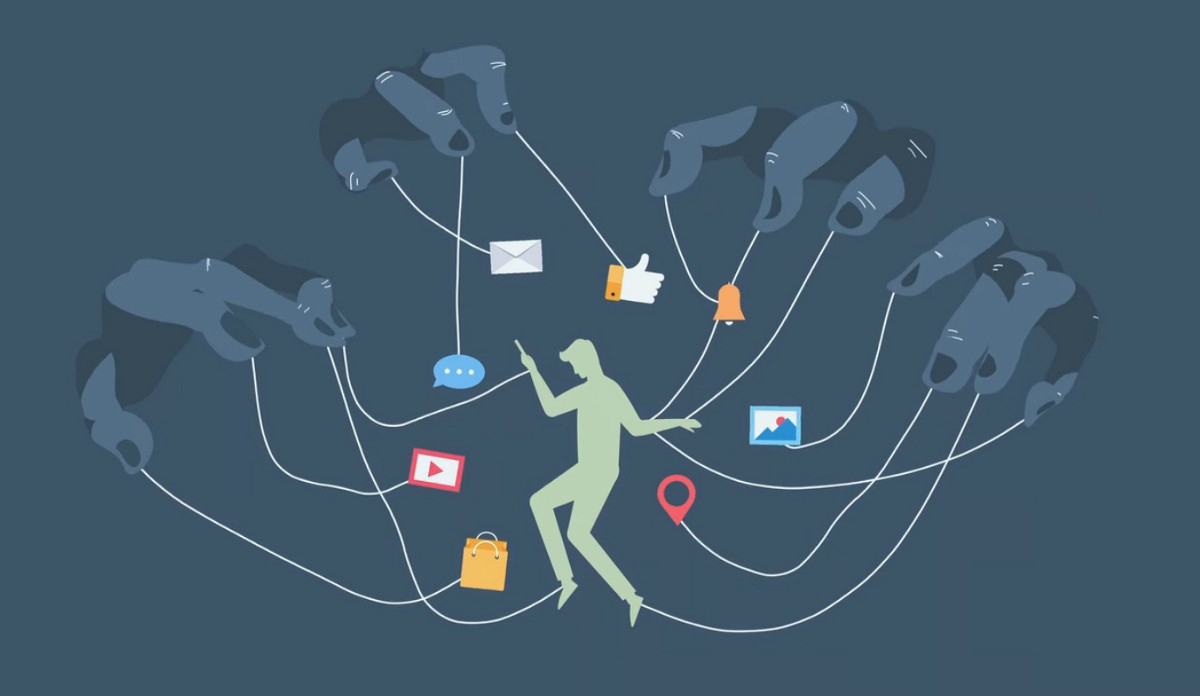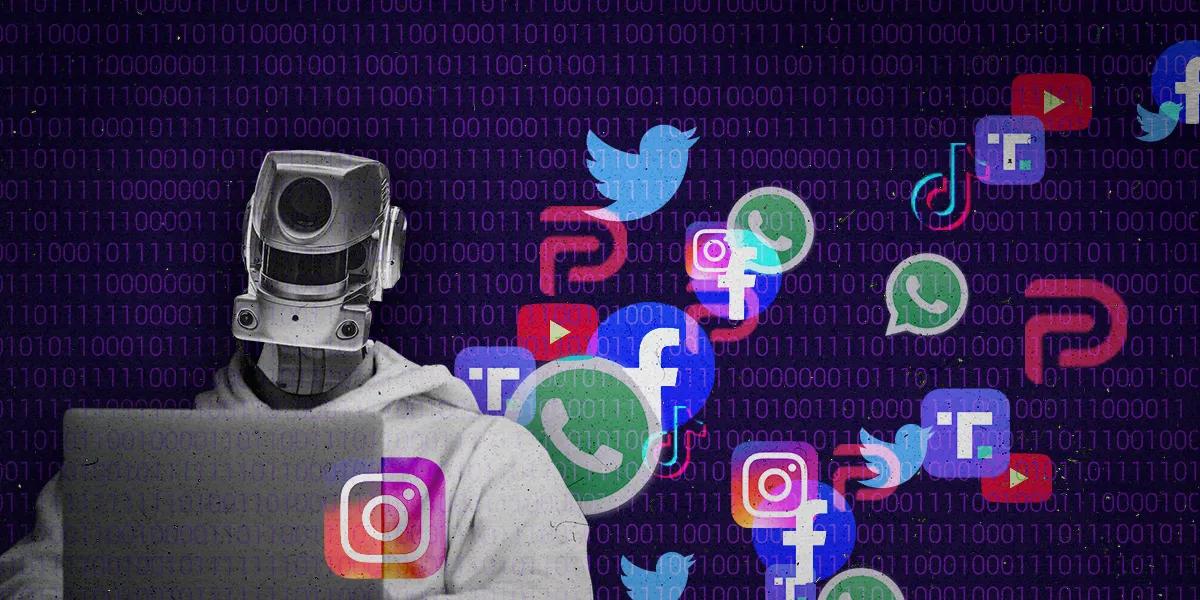Step into the captivating world of social media, where artificial intelligence (AI) is revolutionizing the way we perceive and interact with influencers. Witness the fusion of cutting-edge technology and influencer culture as AI takes center stage in shaping trends, content creation, and engagement strategies. Join us on a journey through the evolution of AI in social media and discover how this powerful tool is reshaping the digital landscape like never before.

The Rise of Influencer Culture

In the age of social media, influencer culture has taken the digital world by storm. Defined by individuals who have built a loyal following based on their expertise or lifestyle, influencers hold significant sway over their audience’s purchasing decisions and trends.
What started as mere endorsements has evolved into a multi-million dollar industry where brands collaborate with influencers to reach their target market authentically. Influencers are no longer just content creators; they are now seen as key players in shaping consumer behavior and preferences.
With the rise of influencer culture, authenticity and relatability have become paramount for both influencers and brands looking to establish trust with their audience. This shift towards more genuine connections has redefined traditional marketing strategies and paved the way for innovative approaches to engaging with consumers through social media platforms.
As influencer culture continues to grow and evolve, it will be interesting to see how AI in social media and technology plays a role in optimizing partnerships between brands and influencers, ensuring that collaborations remain relevant and impactful in an ever-changing digital landscape.
How AI in Social Media is Changing Influencer Marketing

In the realm of influencer marketing, AI technology is revolutionizing the way brands connect with their target audiences. By leveraging generative AI algorithms, companies can now analyze vast amounts of data to identify the most relevant influencers for their campaigns. This ensures a more precise match between brand and influencer, leading to authentic engagements.
AI tools also enable marketers to track performance metrics in real-time, allowing for quick adjustments and optimization strategies. With predictive analytics, businesses can forecast trends and consumer behavior patterns, optimizing their influencer partnerships for maximum impact.
Moreover, AI-powered platforms help streamline communication between brands and influencers by automating campaign management tasks. This not only saves time but also enhances collaboration efficiency. As AI in social media continues to evolve in influencer marketing, we can expect even more personalized and engaging strategies that drive meaningful connections between brands and consumers.
Benefits and Challenges of Using AI in Social Media in Influencer Culture

Discovering the benefits and challenges of utilizing AI in social media for the influencer culture is essential to understanding its impact. One major benefit is the ability to analyze vast amounts of data quickly, allowing brands to identify the most relevant influencers for their campaigns. This leads to more targeted marketing efforts and higher ROI.
On the flip side, one challenge is maintaining authenticity. With AI-generated content becoming increasingly sophisticated, there’s a risk of losing genuine human connections between influencers and their followers. Striking a balance between leveraging AI tools for efficiency while preserving authenticity is crucial in navigating this dynamic landscape.
Another benefit lies in predictive analytics provided by AI algorithms, enabling brands to anticipate trends and adapt their strategies proactively. However, relying solely on automated insights may overlook nuances that only human intuition can capture.
Finding the right blend of AI in social media and human creativity remains a key challenge for influencer culture moving forward.
Real-Life Examples of AI in Social Media

In the realm of social media, AI is revolutionizing how influencers engage with their audience. One real-life example is influencer discovery platforms that utilize AI algorithms to match brands with the most suitable influencers based on demographics, interests, and engagement metrics.
Moreover, chatbots powered by AI are assisting influencers in managing their interactions with followers efficiently. These smart bots can respond to messages, schedule posts, and even analyze user data to tailor content accordingly.
AI-powered analytics tools also play a significant role in helping influencers track performance metrics such as reach, engagement rates, and audience demographics. By leveraging these insights, influencers can optimize their content strategy for better results for AI in social media.
Additionally, some influencers are using generative AI technology to produce high-quality content quickly. This tool assists them in creating compelling visuals or writing engaging captions without spending hours brainstorming ideas.
Ethical Concerns and Future Implications
As artificial intelligence continues to evolve and shape influencer culture on social media, ethical concerns have emerged regarding issues such as data privacy, transparency, and authenticity.
One major concern is the potential for AI to create deepfake content that blurs the line between reality and fiction, raising questions about trust and credibility online. Additionally, there are worries about the manipulation of algorithms by influencers or brands to boost engagement artificially.
Moving forward, it will be crucial for platforms and regulators to establish clear guidelines on the use of AI in influencer marketing to protect users from deceptive practices. Moreover, ensuring that AI technologies are used ethically can help maintain a sense of integrity and honesty in social media interactions.
As we look towards the future implications of AI in influencer culture, it is essential to consider how these technologies may impact society at large – from shaping consumer behavior to influencing political opinions. Adapting responsibly to these changes will be key in navigating the complex landscape of AI-driven social media.
The Impact of AI on the Future of Social Media and Influencer Culture

As we have explored the evolution of AI in social media and how it has shaped influencer culture, it is evident that artificial intelligence is revolutionizing the way brands connect with consumers through influencers. With AI technology such as generative AI enhancing content creation and audience targeting, influencers are able to engage their followers more effectively.
While there are undeniable benefits to using AI in influencer marketing, such as increased efficiency and personalization, there are also challenges to navigate like maintaining authenticity and addressing ethical concerns. As we move forward into the future of social media and influencer culture, it will be crucial for brands and influencers alike to strike a balance between leveraging AI capabilities while upholding transparency and trust with their audiences.
The impact of AI on social media and influencer culture is poised to continue expanding rapidly. By staying informed about technological advancements, remaining mindful of ethical considerations, and adapting strategies accordingly, brands and influencers can harness the power of artificial intelligence to create meaningful connections with their target audiences in an ever-evolving digital landscape.
Check ChatGPT to know more about the influence of AI in social media
Visit QAWire to get more tech news



